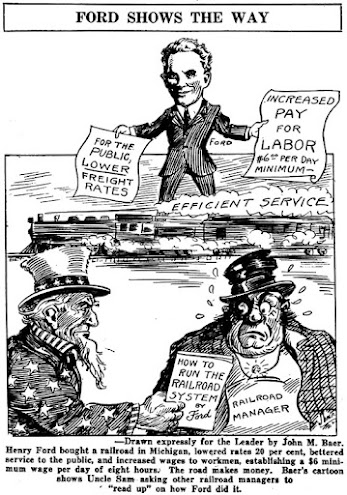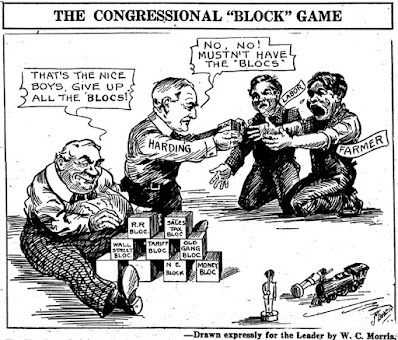Paul "Dear Ruthie" Masterson writes about LGBTQ+ issues for the Milwaukee monthly Shepherd Express. In his October column on LGBTQ History Month, he reported on the efforts to preserve LGBTQ+ history in Wisconsin, including photographs and publications.
So, in the interest of doing my part to keep the past alive, I'm posting a handful of Wisconsin-LGBTQ-issue cartoons I drew for InStep News in the latter half of the 1990's.
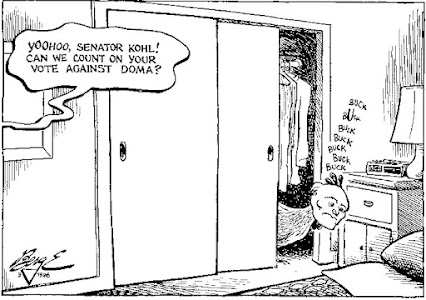 |
| in InStep News, Sept. 18-Oct. 1, 1996 |
This cartoon about Wisconsin's Democratic senior Senator and the so-called Defense of Marriage Act wasn't the first one I had printed in InStep, but with it, my cartoons became a regular feature.
InStep was one of two rival LGBTQ+ newspapers published in Milwaukee in those days. InStep and Wisconsin Light published on alternating weeks, the former in magazine format, the latter as a tabloid, both on newsprint. (InStep converted to tabloid format with the May 29, 1997 Pride issue.)
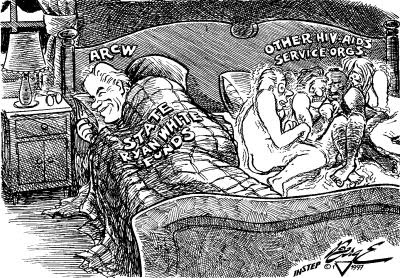 |
| in InStep News, Jan. 22-Feb. 7, 1997 |
This cartoon got a fair amount of reaction; a representative of AIDS Resource Center of Wisconsin, ARCW (now Vivent Health), wrote a letter to InStep to correct what she called the cartoon's "serious misinterpretation."
Distribution by the state of Wisconsin of federal Ryan White HIV/AIDS funds had been cut from nine independent agencies that year to five, a major portion going to the ARCW. I don't think I can claim credit for subsequent Wisconsin's re-examination of its allocation of Ryan White funds, which ARCW participated in and fully supported.
I've told this story before, but I got the idea for this cartoon from my first night sleeping over with the man who is now my better half. I was the one hogging the blankets by morning.
 |
| March 20-April 2, 1997 |
The face of Republicans' Wisconsin iteration of a "Defense of Marriage Act" was that of State Rep. Lorraine Serrati (R-Spread Eagle, yes, that's a real place), who sponsored AB 104 to prohibit Wisconsin from recognizing same-sex marriages performed in other states. Although the federal DOMA was passed by Congress and signed by President Clinton a year earlier, a court ruling in Hawai'i raised the possibility that same-sex marriage might become legal in the Aloha State.
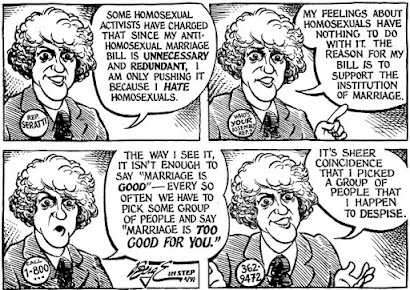 |
| May 1-15, 1997 |
It didn't, but AB 104's opponents, led by Assembly Reps. Tammy Baldwin (D-Madison, now U.S. Senator) and Barbara Notestein (D-Milwaukee), charged that Ms. Serrati's bill was divisive and redundant, in that the Wisconsin Constitution already defined marriage as between a "husband" and a "wife," and futile in that the Democratic majority in the State Senate was unlikely to bring the issue to a vote.
Democrats also viewed it as a cynical attempt by Republicans to expand their narrow majority in the Assembly; Rep. Baldwin told In Step, "What my colleagues fear is the 30-second radio or TV ad in their next election campaign, which proclaims that they support ho-mo-sex-u-al marriage."
 |
| in InStep, March 19-April 1, 1998 |
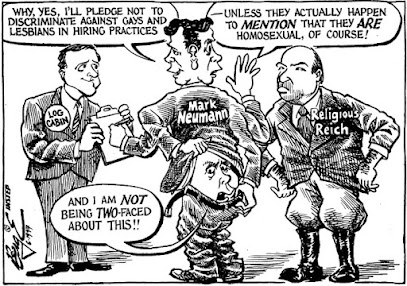 |
| in InStep, June 12-26, 1997 |
The other people in my cartoon are real Wisconsin persons. Scott Evertz, on the left, was head of the Log Cabin of Wisconsin; he would later be George W. Bush's Director of the White House Office of AIDS Policy for about a year.
On the right, Rev. Ralph Ovadal of Wisconsin Christians United, was and is an extreme right-wing pastor; his church in Monroe is listed by the Southern Poverty Law Center as an anti-LGBTQ+ hate group. In addition to LGBTQ+ rights, he actively opposes nude beaches, women's reproductive rights, modern Bible translations, and the Roman Catholic Church.
 |
| in Q·Voice, September, 1997 |
In 1995, Jorge Cabal, life and business partner of InStep publisher William Attewell, launched Q·Voice, a feature magazine; this was months before they bought InStep from its founder, Ron Geiman. Q·Voice was published separately from InStep for a time, but within three years was folded back into it as an insert, then as an integrated section within the newspaper.
I drew this caricature of John Norquist for Q·Voice as a full-page illustration for an interview of then Mayor of Milwaukee. Time magazine had recently run its own glowing profile of Mr. Norquist, so I referenced that in the illustration.
✍
In the spring of 1998, David Bianco, then publisher of Q Syndicate, contacted me interested in syndicating my cartoons nationally, an opportunity I was happy to accept. It came with the stipulation that my LGBTQ+ cartoons would be exclusively for Q Syndicate (a provision that never caused conflict with my concurrent cartooning for the Business Journal of Greater Milwaukee).
Bianco promptly withheld my cartoons from InStep, charging that Attewell was behind in paying for Q Syndicate features.
From my standpoint, that could hardly have come at a worse time. Immensely popular Green Bay Packers star defensive end Reggie White had just gobsmacked Wisconsin politicians by attacking LGBTQ+ people in a rambling hour-long speech to a joint session of the legislatures.
As reported by William Attewell & Keith Clark:"We have allowed sin to run rampant in our nation, and because we have, that is why our nation is in the condition that it is in," White told the legislators, saying that homosexuality was "one of the biggest sins."White told the Wisconsin lawmakers that "homosexuality is a decision, not a race," and should not be protected under civil rights legislation the way race and ethnic minorities are.
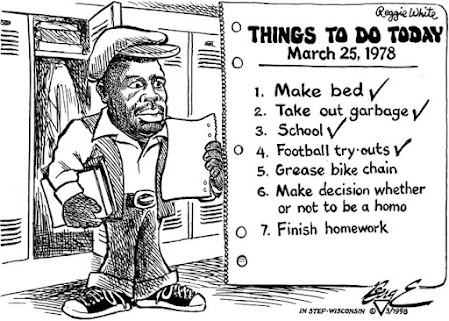 |
| in InStep, April 16-30, 1998 |
The issue between InStep and Q Syndicate was resolved within a few weeks, and what came out of it all was that InStep was grandfathered as an exception to the syndicate's LGBTQ+ content exclusivity clause. "Things to Do Today" would be my last editorial cartoon drawn specifically for InStep, although I did draw them a couple Pridefest Issue cover illustrations after this.
The only other time I sent InStep a local-issue editorial cartoon before the paper folded in 2003 was in July of 1999. Actually, it only involved changing a bit of the dialogue in a cartoon drawn for Q Syndicate. The cartoon was about Milwaukee's Common Council approving a registry for same-sex couples; but where the rest of the country read "the religious right," my special version for InStep had the name of a local person.
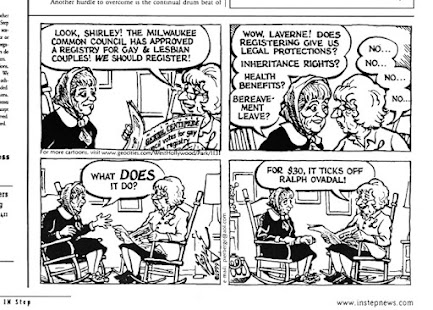 |
| in InStep, July 29-August 11, 1999 |
(The other version of the cartoon is here.)
























